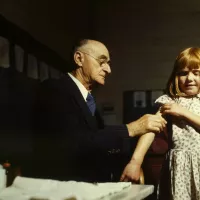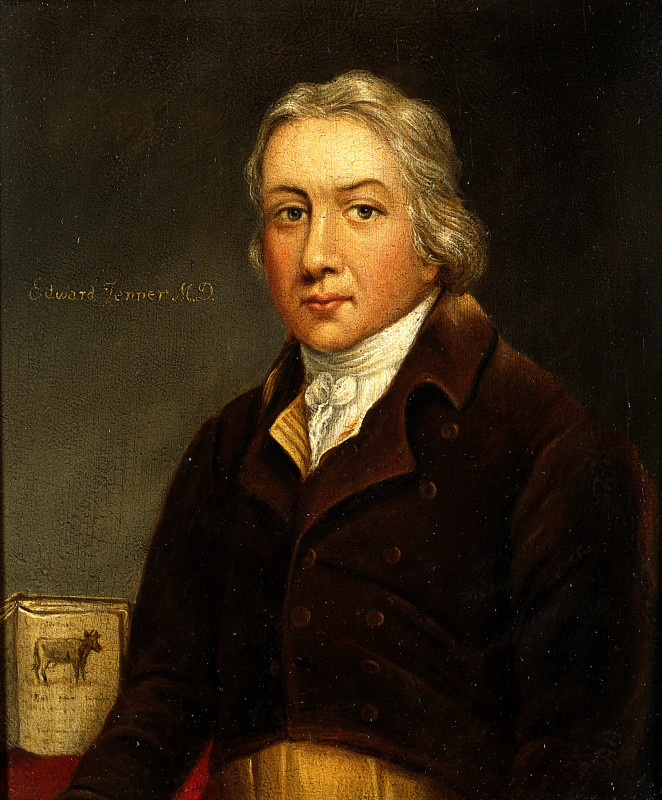Malawi, a landlocked country in Southeastern Africa, is officially the Republic of Malawi. Bordered by Zambia, Tanzania, and Mozambique, it covers 118,484 km2 (45,747 sq mi) and has an estimated population of 21,240,689. Lilongwe is the capital and largest city, followed by Blantyre, Mzuzu, and Zomba (the former capital).
1907: Renaming of British Central Africa Protectorate to Nyasaland
In 1907, the British Central Africa Protectorate was renamed Nyasaland.
1944: Formation of Nyasaland African Congress (NAC)
In 1944, the Nyasaland African Congress (NAC) was formed to promote local interests to the British government.
1953: Linking with Rhodesia in CAF
In 1953, Britain linked Nyasaland with Northern and Southern Rhodesia in what was the Federation of Rhodesia and Nyasaland (CAF).
1958: Banda Returns to Nyasaland
In 1958, Hastings Banda returned to Nyasaland to assist the nationalist cause.
1959: Banda Jailed
In 1959, Hastings Banda was jailed by colonial authorities.
1960: Banda's Release and Constitution Drafting
In 1960, Hastings Banda was released and asked to help draft a new constitution for Nyasaland.
1961: MCP Majority in Legislative Council
In 1961, Banda's Malawi Congress Party (MCP) gained a majority in the Legislative Council elections.
1963: Banda Becomes Prime Minister
In 1963, Hastings Banda became Prime Minister.
July 1964: Independence of Malawi
On July 6, 1964, Nyasaland became independent from British rule and renamed itself Malawi.
1964: Flag of Malawi
From 1964 to 2010, the flag of Malawi was made up of three equal horizontal stripes of black, red, and green with a red rising sun superimposed in the center of the black stripe.
1964: Independence and Renaming to Malawi
In 1964, Nyasaland became an independent country within the Commonwealth realm and was renamed Malawi, with Hastings Banda as Prime Minister.
1964: Malawi name origin
In 1964, after achieving independence from Great Britain, the first president of Malawi, Kamuzu Banda, chose the name Malawi.
1964: Judicial System Modifications
Since Malawi's independence in 1964, the judicial system has been modified several times.
1964: Establishment of the Malawi Broadcasting Corporation
Television Malawi, run by the Malawi Broadcasting Corporation (MBC), is the national public broadcaster of Malawi, established under an Act of Parliament in 1964.
1971: Banda Declared President for Life
In 1971, Hastings Banda was declared President for Life of Malawi.
1976: Establishment of the Malawi Air Force
The Malawi Air Force was established with German help in 1976.
1984: Lake Malawi National Park listed on UNESCO World Heritage List
Lake Malawi National Park was first listed on the UNESCO World Heritage List in 1984.
1985: Refugee haven since 1985
Since 1985, Malawi has been a haven for refugees from other African countries, including Mozambique and Rwanda. The influx of refugees strained Malawi's economy but also attracted aid from countries like the United States, Canada, and Germany, and organizations like the World Bank, the International Monetary Fund, the European Union, the African Development Bank, and the UN.
November 1987: Formation of the National Dance Troupe
The National Dance Troupe (formerly the Kwacha Cultural Troupe) was formed in November 1987 by the government.
1990: Poverty rate in Malawi
The poverty rate in Malawi decreased from 54% in 1990 to 40% in 2006, and the percentage of "ultra-poor" decreased from 24% in 1990 to 15% in 2007.
1991: First science and technology policy
Malawi's first science and technology policy dates from 1991.
1992: Primary school enrollment rate
The enrollment rate for primary schools in Malawi went up from 58% in 1992 to 75% in 2007.
1993: Referendum for Multiparty Democracy
In 1993, Banda agreed to a referendum where the populace voted for a multi-party democracy.
1993: Introduction of Multiparty System
In 1993, Malawi introduced a multiparty system.
1994: Collapse of apartheid
Following the collapse of apartheid in 1994, Malawi established and maintained diplomatic relationships with all other African countries.
1994: Banda Loses Election
In 1994, Hastings Banda lost the general election after the introduction of a multiparty system.
1994: First Multi-Party Elections
In 1994, the first multi-party elections were held in Malawi, and Banda was defeated by Bakili Muluzi.
1994: Free primary education established
In 1994, the government established free primary education for all Malawian children.
May 1995: Current Constitution Put in Place
The current constitution of Malawi was put into place on May 18, 1995.
1999: Muluzi Re-elected
In 1999, Bakili Muluzi was re-elected as president.
November 2000: Local Elections
In November 2000, local elections took place for the first time in the multi-party era, with the UDF party winning 70% of the available seats.
December 2000: IMF stopped aid disbursements
In December 2000, the IMF stopped aid disbursements to Malawi due to corruption concerns, followed by many individual donors, resulting in an almost 80% drop in Malawi's development budget.
2000: Youth literacy rate
According to the World Bank, youth literacy in Malawi had increased from 68% in 2000 to 75% in 2015.
2000: Land line telephone connections
Between 2000 and 2007, Malawi connected 130,000 land line telephones.
2000: Establishment of Health Insurance Schemes
Health insurance schemes have been established in Malawi since 2000.
2000: Governance Score Improvement Start
Malawi's governance score had improved between 2000 and 2011.
2002: Revised science and technology policy
In 2002, Malawi revised its science and technology policy, which originally dated from 1991. The 2002 policy envisaged the establishment of a National Commission for Science and Technology.
2003: Roadways in Malawi
As of 2003, Malawi had 24,866 kilometres of roadways, with 6,956 kilometres paved and 8,495 kilometres unpaved.
2003: Science and Technology Act
The Science and Technology Act of 2003 made provision for the creation of the National Commission for Science and Technology and also established a Science and Technology Fund.
2004: Mutharika Elected
In 2004, Bingu wa Mutharika was elected president.
February 2005: Mutharika forms DPP
In February 2005, President Mutharika split with the United Democratic Front and began his own party, the Democratic Progressive Party.
May 2005: Cancellation of Local Elections
In May 2005, the scheduled second round of constitutionally mandated local elections were cancelled by the government.
2005: Malawi received over US$575 million in aid
In 2005, Malawi received over US$575 million in aid.
2005: Malawian scientists' output in international journals
In 2005, Malawian scientists published 116 articles in Thomson Reuters' Web of Science, which increased to 322 articles by 2014.
2006: Introduction of ethanol-blended petrol
Beginning in 2006, Malawi started mixing unleaded petrol with 10% ethanol, produced in-country at two plants, to reduce dependence on imported fuel. Also in 2006, the Fertiliser Input Subsidy Programme (FISP) was launched in response to low agricultural harvests.
2006: DPP Wins By-Elections
In 2006, the Democratic Progressive Party had won by-elections across the country.
2006: Percentage of students completing standard five
In 2006, the percentage of students who begin standard one and complete standard five has increased to 86% in Malawi. This is an increase from 64% in 1992.
2006: Chongoni Rock Art Area listed on UNESCO World Heritage List
The Chongoni Rock Art Area was listed on the UNESCO World Heritage List in 2006.
2006: Poverty rate decreases
The poverty rate in Malawi decreased from 54% in 1990 to 40% in 2006, and the percentage of "ultra-poor" decreased from 24% in 1990 to 15% in 2007.
2007: Land line telephone connections
Between 2000 and 2007, Malawi connected 130,000 land line telephones.
2007: Tobacco exports
Between 2007 and 2008, tobacco exports in Malawi jumped from 53% to 70% of export revenues.
2007: Establishment of diplomatic ties with China
In 2007, Malawi established diplomatic ties with China. Chinese investment in the country continued to increase afterwards, despite concerns about worker treatment and competition with local businesses.
2007: Economic Progress
In 2007, key indicators of progress in the economy were observed.
2007: Primary school enrollment rate
In 2007, primary school enrollment rate in Malawi was 75%. The rate increased from 58% in 1992 due to the establishment of free primary education in 1994.
2007: Percentage of 'ultra-poor' decreases
The poverty rate in Malawi decreased from 54% in 1990 to 40% in 2006, and the percentage of "ultra-poor" decreased from 24% in 1990 to 15% in 2007.
2008: Railways in Malawi
As of 2008, Malawi had 797 kilometres of narrow-gauge railways.
2008: Tobacco exports increased
Between 2007 and 2008, tobacco exports in Malawi jumped from 53% to 70% of export revenues.
2008: Diminished Internal Conflict
By 2008, internal conflict in Malawi had considerably diminished, and the idea of identifying with one's Malawian nationality had reemerged.
2008: Testing cars running solely on ethanol
In 2008, Malawi began testing cars that ran solely on ethanol and continued to increase its use of ethanol.
2008: Economic growth estimated
In 2008, Malawi's economic growth was estimated at 9.7%.
2008: Reforms to Address Corruption
In 2008, President Mutharika implemented reforms to address the country's major corruption problem.
May 2009: Mutharika Re-elected
In May 2009, President Mutharika was successfully re-elected, despite charges of election fraud.
2009: Exports estimated
As of 2009, Malawi exported an estimated US$945 million in goods per year. The country relies heavily on tea, tobacco, sugar, and coffee for export revenue.
2009: Investment fell
In 2009, investment in Malawi fell 23%, leading to a shortage of foreign exchange and reduced ability to pay for imports.
2009: Industrial production growth rate
In 2009, the industrial production growth rate in Malawi was estimated at 10%.
2009: Purchase of a private presidential jet and fuel shortage
In 2009, the purchase of a private presidential jet was followed by a nationwide fuel shortage, likely due to the hard currency shortage caused by the jet purchase.
2009: Strong growth predicted by IMF
The International Monetary Fund predicted strong economic growth for Malawi in 2009.
2010: Homosexuality illegal
As of 2010, homosexuality was illegal in Malawi. A case involving a man and a trans woman perceived as homosexual resulted in a 14-year hard labor sentence, but they were later pardoned.
2010: Investment in Research and Development
In 2010, Malawi devoted 1.06% of its GDP to research and development, which equated to $7.8 per researcher.
2010: Strained relationship with Mozambique
In 2010, Malawi's relationship with Mozambique became strained due to disputes over the Zambezi River and an inter-country electrical grid.
2010: Malawian Flag Modification
In 2010, the Malawian flag was modified.
2010: Flag Change
In 2010, the flag of Malawi was changed, removing the red rising sun and adding a full white sun in the centre as a symbol of Malawi's economic progress.
2010: Women's Life Expectancy
In 2010, the life expectancy of women in Malawi was approximately 58 years.
2010: Population Estimate
In 2010, the population of Malawi was estimated to be 16 million.
March 2011: Euromoney Country Risk rankings
In March 2011, Malawi was ranked the 119th safest investment destination in the world in the Euromoney Country Risk rankings.
July 2011: Protests Erupt
In July 2011, protests erupted over high costs of living, devolving foreign relations, poor governance, and a lack of foreign exchange reserves, leaving 18 people dead.
July 2011: Suspension of aid by the UK and US
In July 2011, the UK suspended all budgetary aid due to President Mutharika's lack of response to criticisms. On 26 July 2011, the United States followed suit, freezing a US$350 million grant, citing concerns regarding the government's suppression and intimidation.
2011: Pro-Western foreign policy continued
In 2011, Malawi continued its pro-Western foreign policy, maintaining good diplomatic relationships with many Western countries. Ties with the United States were strengthened following the transition to a multi-party democracy. Many Malawian students studied in the US, which also had active Peace Corps, Centers for Disease Control and Prevention, Department of Health and Human Services, and Agency for International Development branches in Malawi.
2011: National Commission for Science and Technology becomes operational
In 2011, the National Commission for Science and Technology became operational, with a secretariat resulting from the merger of the Department of Science and Technology and the National Research Council.
2011: Governance Score Improvement End
Malawi's governance score had improved between 2000 and 2011.
April 2012: Mutharika's Death and Banda's Succession
In April 2012, President Mutharika died of a heart attack, and Joyce Banda took over the presidential title.
May 2012: Pledge to repeal laws criminalising homosexuality
In May 2012, then-President Joyce Banda pledged to repeal laws criminalizing homosexuality in Malawi.
2012: Airports in Malawi
As of 2012, Malawi had 31 airports, with seven having paved runways (two international airports) and 24 having unpaved runways.
2012: Ibrahim Index of African Governance Ranking
In 2012, Malawi was ranked 7th of all countries in sub-Saharan Africa in the Ibrahim Index of African Governance.
2012: Foreign Investments
In 2012, most foreign investments in Malawi flowed to infrastructure (62%) and the energy sector (33%).
2012: Restoration of Old Flag Colors
In 2012, the colors of black-red-green of the old flag were restored.
2012: Flag Change Reverted
In 2012, the flag change from 2010 was reverted, restoring the original flag with a red rising sun.
2012: Compulsory primary education
Primary education has been compulsory in Malawi since the passage of the Revised Education Act in 2012.
2013: Contribution of agriculture to GDP
In 2013, agriculture contributed to 27% of GDP in Malawi, despite over 80% of the population being engaged in subsistence farming.
2013: Investment portfolio and National Export Strategy
In 2013, the Malawi Investment and Trade Centre assembled an investment portfolio spanning 20 companies, and the government adopted a National Export Strategy.
2014: Science and Technology Fund not yet operational
As of 2014, the Science and Technology Fund, established by the Science and Technology Act of 2003, was not yet operational.
2014: Malawian General Election
In 2014, Joyce Banda lost the Malawian general election and was replaced by Peter Mutharika.
2014: Malawian scientists' output in international journals
In 2014, Malawian scientists published 322 articles in Thomson Reuters' Web of Science, nearly triple the number from 2005.
January 2015: Floods hit southern Malawi
In January 2015, southern Malawi was hit by floods, affecting over a million people, displacing 336,000 according to UNICEF, killing over 100 people, and washing away an estimated 64,000 hectares of cropland.
2015: Strategic Plan for Science, Technology, and Innovation revision
As of early 2015, the revised Strategic Plan for Science, Technology, and Innovation (2011–2015) had not yet met with Cabinet approval.
2015: Religious Groups in Malawi
At the end of 2015, The Church of Jesus Christ of Latter-day Saints had just over 2,000 members in Malawi.
2015: Legal age for marriage raised
In 2015, Malawi raised the legal age for marriage from 15 to 18.
2015: Moratorium on anti-gay laws
In 2015, President Peter Mutharika imposed a moratorium that suspended the country's anti-gay laws pending further review.
2015: HIV/AIDS prevalence
In 2015, the adult prevalence rate of HIV/AIDS in Malawi was high, with an estimated 980,000 adults (or 9.1% of the population) living with the disease.
2015: Youth literacy rate
In 2015, the youth literacy rate in Malawi was 75%. This rate increased from 68% in 2000 according to the World Bank.
2016: Television stations on digital network
By 2016, Malawi had 20 television stations on the country's digital network MDBNL.
2016: Drought
In 2016, Malawi was hit by a drought.
2016: Population Estimate
In 2016, Malawi's population was estimated to be 18,091,575.
January 2017: Armyworm outbreak
In January 2017, Malawi reported an outbreak of armyworms around Zomba, destroying 2,000 hectares of crop across nine districts, according to agriculture minister George Chaponda on 14 January 2017.
2017: Purchasing power parity
As of 2017, Malawi had a purchasing power parity (PPP) of $22.42 billion, with a per capita GDP of $1200, and inflation estimated at 12.2%.
2017: Human rights issues
As of 2017, international observers noted excessive force by police, mob violence, and harsh prison conditions in Malawi. Other issues included limits on free speech, lengthy pretrial detentions, and corruption. The government made some efforts to prosecute security forces for excessive force.
2017: Signing of UN Treaty on the Prohibition of Nuclear Weapons
In 2017, Malawi signed the UN Treaty on the Prohibition of Nuclear Weapons.
2017: Women's Life Expectancy
In 2017, the life expectancy of women in Malawi was approximately 66 years.
May 2019: President Mutharika Re-election
In May 2019, Peter Mutharika won the election over Lazarus Chakwera, Atupele Muluzi, and Saulos Chilima.
2019: Forest Landscape Integrity Index
In 2019, Malawi had a Forest Landscape Integrity Index mean score of 5.74/10, ranking it 96th globally out of 172 countries.
2019: Global Innovation Index Ranking
In 2019, Malawi was ranked 118th in the Global Innovation Index, which improved to 107th in 2021.
2019: Malawian General Election
In 2019, President Peter Mutharika was narrowly re-elected in the Malawian general election.
February 2020: Election Result Overturned
In February 2020, the Malawi Constitutional Court overturned the result of the 2019 election due to irregularities and widespread fraud.
May 2020: Supreme Court Upholds Decision
In May 2020, the Malawi Supreme Court upheld the decision to overturn the 2019 election result and announced a new election.
2020: Annulment of Election Victory
In 2020, Malawi Constitutional Court annulled President Peter Mutharika's narrow election victory last year because of widespread fraud and irregularities and Lazarus Chakwera became the new president.
2020: Affordable Inputs Program replaced FISP
In 2020, the Affordable Inputs Program (AIP) replaced the FISP, extending the subsidy on maize seed and fertiliser to sorghum and rice seed.
2020: Central Government Budget
The central government budget for the 2020/2021 financial year was $2.8 billion.
March 2021: Netball Ranking
As of March 2021, the Malawi national netball team was ranked 6th in the world.
June 2021: First Pride parade in Lilongwe
On June 26, 2021, the LGBT community in Malawi held the first Pride parade in Lilongwe.
2021: Population Estimates
According to 2021 estimates, Malawi has a population of over 19 million, with a growth rate of 3.32%.
2021: Global Innovation Index Ranking
Malawi was ranked 107th in the Global Innovation Index in 2021, an improvement from 118th in 2019.
2021: Central Government Budget
The central government budget for 2021/2022 is $2.4 billion.
2022: Mobile phone connections and Internet users
In 2022, Malawi had 10.23 million mobile phone connections and 4.03 million Internet users. Also, as of 2022, the country had one government-run and a dozen privately owned radio stations.
2022: Central Government Budget
The central government budget for 2021/2022 is $2.4 billion.
2024: Global Peace Index ranking
According to the 2024 Global Peace Index, Malawi is the 79th most peaceful country in the world (out of 163).
2024: Democracy Ranking
According to the 2024 V-Dem Democracy indices, Malawi is ranked 74th electoral democracy worldwide and 11th in Africa.
2024: Malawi Population
In 2024, Malawi has an estimated population of 21,240,689.
2024: Global Hunger Index
In the 2024 Global Hunger Index, Malawi's score is 21.9, indicating a serious level of hunger. Malawi is ranked 93rd out of 127 countries.
2050: Population Forecast
The population of Malawi is forecast to grow to over 47 million people by 2050.
Mentioned in this timeline
Germany officially the Federal Republic of Germany is a nation...
China officially the People's Republic of China is an East...
Africa is the second-largest and second-most populous continent comprising of...

Inflation in economics signifies an increase in the average price...
South Africa officially the Republic of South Africa RSA is...
Ghana officially the Republic of Ghana is a West African...
Trending

48 minutes ago Google Maps to fully function in South Korea after data agreement.

2 hours ago CDC Panel to Discuss COVID-19 Vaccine Injuries Following RFK Jr.'s Meeting

49 minutes ago CDC Panel to Discuss COVID Vaccine Injuries Following RFK Jr.'s Meeting

2 hours ago Casey Means' Surgeon General Nomination Faces Scrutiny Over Mainstream Medicine Criticism and Birth Control Views.
3 hours ago Punch, the lonely baby monkey, goes viral and wins hearts worldwide.

4 hours ago Jon Hamm Discovers Viral Dancing Meme; Reacts to Meme-Worthy Status at 54.
Popular

Jesse Jackson is an American civil rights activist politician and...

Barack Obama the th U S President - was the...

Susan Rice is an American diplomat and public official prominent...

XXXTentacion born Jahseh Dwayne Ricardo Onfroy was a controversial yet...

Michael Joseph Jackson the King of Pop was a highly...

Kashyap Pramod Patel is an American lawyer who became the...